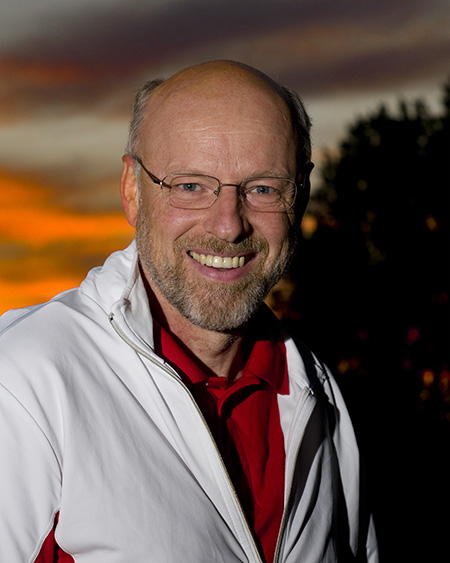Bob McCormack, Associate Professor in the Department of Orthopaedics, is headed to Sochi for the 2014 Olympic Winter Games, reprising his role as Chief Medical Officer (CMO) for the Canadian Olympic Committee.
Dr. McCormack has attended nine Olympic Games since 1976 – first as a participant in the Olympic Torch Relay at the Summer Games in Montreal and since 2004 as CMO.
Here, he shares the inside track on the Games and how athletes get themselves ready for performing under the spotlight.
It’s less than a month before the Sochi Games, what are Team Canada and other Olympic athletes doing to prepare themselves for the Games?
They’re trying to get the final items in place and we have a checklist to help them do that – from getting a flu shot, to installing a translation app on their smartphone, to bringing their special pillow if they need one to sleep well. Anything that will keep them healthy, comfortable and focused once they arrive in Sochi.
We also have to keep them injury free, which is a challenge in high-speed winter sports that occur on hard ice surfaces. Athletes have to train and compete aggressively but injuries can derail an Olympic dream. For example athletes are also competing later this month in the Winter X Games, which are notorious for injuries, so a big concern is staying injury-free until the big day.
This is your sixth Olympic Games as the Chief Medical Officer for Team Canada. What major trends have you seen?
There is a lot more technology, a lot more integration of sport science, nutrition and sport psychology. We try to plan for every eventuality and are very proactive in anticipating the needs of the team (such as water, food and immunizations). We’re shipping thirteen 12-metre containers of supplies and equipment to Sochi to essentially set up two medical clinics. That’s the size of 10 adult African elephants!
What might surprise an outsider about the Games?
There are a fair number of athletes who arrive to the Games injured. When you’re training at a high level, you’re on a razor-thin edge between optimal training and the dark abyss of over-training. With winter sports, speed and hard surfaces like ice are a dangerous combination.
And there are probably more loonies buried in sports venues around the world than you’d think.
As an academic, you also contribute research through Canada’s Own the Podium program to give our athletes an edge. How important is research in these high-performance sports?
Research is critical. At the Games, the difference between the gold medal and off the podium can be 2/100 of a second. We’re always looking to get an edge in training, equipment or performance technology – if you’re not high tech, you’re not on the podium. Olympic athletes are very finely tuned machines and, more importantly, they are incredibly motivated, which is a big part of being able to accomplish what they do.
One of the contributions of UBC researchers is we’ve implemented a program to keep all the data from our athletes in their competitions. This includes medical data, video analyses, X-rays of injuries which we can make them available to experts no matter where the athletes are in the world. This better allows our experts in Canada to give advice while they are travelling, or take over care when they get home.
What’s your advice to recreational athletes to avoid injuries?
After each Games there is always a surge in people getting into Olympic sports and sometimes people get overly ambitious. When starting a new fitness program, get an assessment, gradually progress and avoid overloading your system. Give your body time to adapt to the training load.
I’ll be going to Rio for the next Games. To get some more experience with summer sports, I decided to try my hand at some track cycling and rowing. I think the best way to start a new sport is to take a learn-to-ride (or row) program. It’s safer when you learn good technique and ultimately you’ll enjoy it more if you aren’t suffering from injuries from the start.
Find other stories about: Bob McCormack, Canadian Olympic Committee, Faculty of Medicine, sochi
